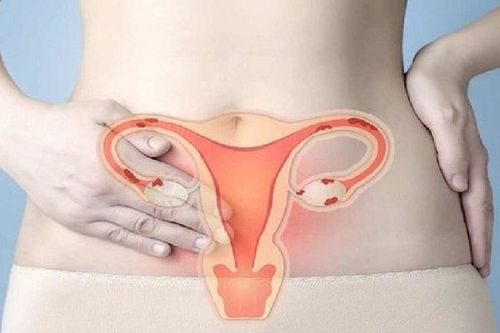This is an automatically translated article.
Early stage lung cancer often has no characteristic symptoms. Therefore, people at high risk of vulvar cancer need to know the early signs and causes of vulvar cancer to proactively go to the hospital for examination and timely intervention.
1. General information about vulvar cancer
Vulvar cancer is cancer on the outer surface of the female genitals. This is the skin surrounding the vagina and urethra, including the clitoris, labia majora, and labia minora.
Vulvar cancer in the early stages has no specific symptoms, the patient may feel itching, bleeding, tightness... These symptoms are often overlooked because they are similar to bacterial infections. , common fungal infections.
The disease is common in the elderly, also known as vulvar intraepithelial neoplasia. Vulvar cancer usually begins with a nodule or an ulcer in the vulva, most commonly on the labia majora. These sores will develop into vulvar cancer.
2. Vulvar cancer symptoms like?
Early stage vulvar cancer has no clinical symptoms. Patients need to see a doctor if there are signs such as:
Appearing vulvar tumor; The skin on the vulva changes color; There are warts on the skin of the vulva; There are non-healing sores in the vulva; Prolonged vulvar itching; Abnormal vaginal bleeding; Vulva tension.

Ngứa âm hộ kéo dài có thể là dấu hiệu của ung thư âm hộ
3. Vaginal Cancer Diagnosis
Diagnosis of vulvar cancer is made based on physical examination and basic tests. The doctor will perform a gynecological examination and a laparoscopy, examining the vulva area with a laparoscope to accurately detect abnormalities.
The patient may be indicated for a biopsy by taking a part of an ulcer or tumor tissue in the vulva to examine under the microscope for cancer cells or not.
4. Causes of vulvar cancer
There are neoplastic lesions in the vulvar epithelium: These lesions are called precancerous lesions. Most of them are benign, but a few develop into vulvar cancer; Age: Older women are at higher risk. The average age of patients diagnosed with vulvar cancer is 65; Human papillomavirus infection, mainly HPV type 6,11. It is a sexually transmitted virus and is a risk factor for several cancers such as cervical and vulvar cancer. This risk is often seen in people who have sex early or have multiple partners. Most cases of HPV infection go away on their own, but there are also many cases of prolonged infection, the virus causes cell changes. If left untreated, it can lead to precancerous lesions and eventually cancer; Smoke; Immunocompromised state; Skin changes such as lichen planus make the skin thin and itchy.

Phụ nữ lớn tuổi có nguy cơ mắc bệnh cao hơn
5. Vulvar Cancer Treatment
Treatment of vulvar cancer depends on the type of tumor tissue, the severity of the disease, the patient's health status and wishes. The most common treatment for vulvar cancer is surgery to remove the tumor and some surrounding healthy tissue. In some cases, the entire vulva must be removed if the disease is detected at a late stage, with a large tumor. Therefore, early treatment of vulvar cancer will help improve the effectiveness of treatment.
Radiation therapy is often used to shrink tumors before surgery, or to destroy any remaining cancer cells after surgery. For patients in the late stage, the disease has spread to the surrounding organs, chemotherapy can be used.
After completing treatment, patients need periodic follow-up to promptly detect precancerous recurrence, even after successful treatment.
MORE:
What is a vulva? How to tell if the vulva is normal or abnormal? Vulvar inflammation and pain: What you need to know HPV vaccine: Who should get it and when?













